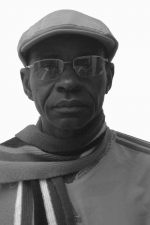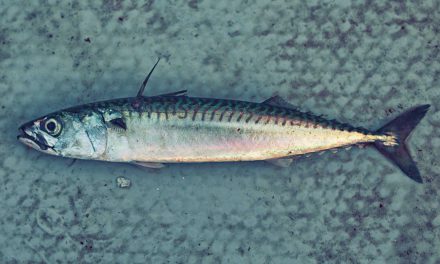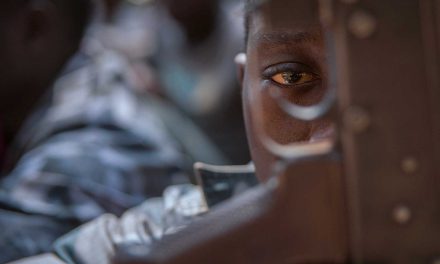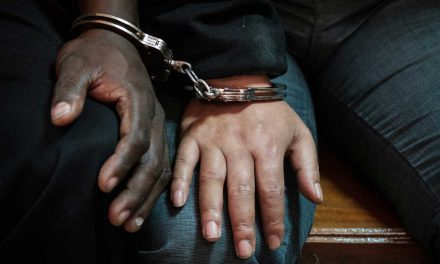Marianne*, a woman from the Democratic Republic of Congo (DRC) living in Nairobi, hosts two young women, one from Uganda and the other local, in her apartment in one of the Kenyan capital’s middle-class suburbs. From her cellular phone, Marianne shows her guests photos of “some stuff” her overseas customers are willing to pay a fortune for.
After the meeting, Sheila*, from Uganda, agrees to talk exclusively to Africa in Fact behind Marianne’s back and on condition that she does not disclose the nature of the merchandise. “We are leaving for Kampala (Uganda) tomorrow to meet our suppliers and get the stuff out. Marianne is our boss; she wants it as soon as possible because apparently her buyers are ready and have even made a down payment,” she says.
Though the nature of the “stuff” was not disclosed, a research paper published in September 2022 by Project ENACT, titled ‘Living on the edge: women and organised crime in East Africa’, says a wide range of goods – from drugs and arms to wildlife and extractives – is trafficked within East Africa and beyond, driven by a complex web of socioeconomic and political factors across the region.
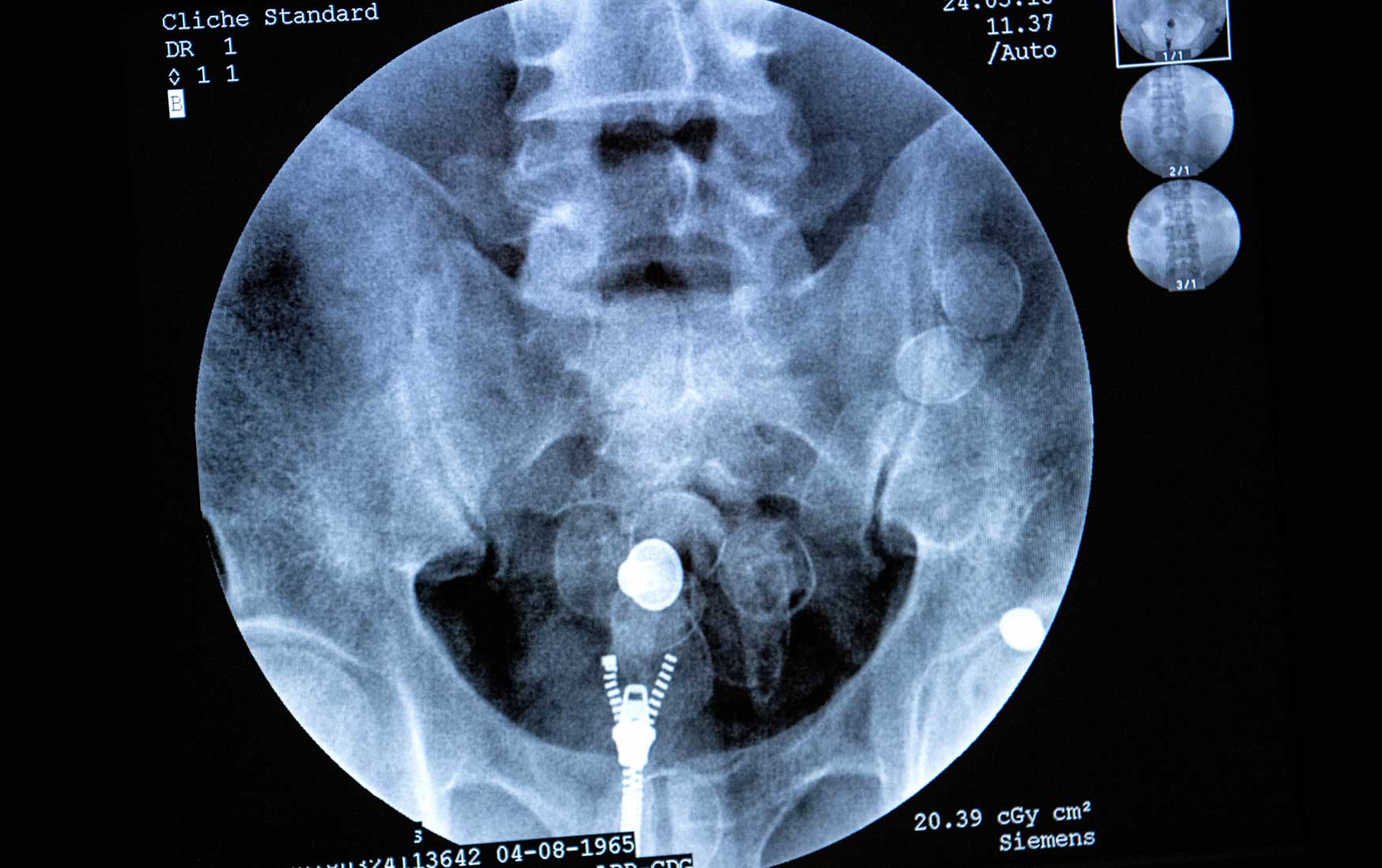
An X-ray of the abdomen of a drug mule containing several capsules of cocaine (small egg-size balls behind the zip and trousers’ button) which were ingested to cross borders. Photo: Christophe Archambault / AFP
Sheila and her Kenyan friend, who has not been named, joined what she describes as a “fraternity of sisters helping sisters” in 2021 and this would be their third trip to Uganda as “stuff” carriers. “I’m only 23 and I still want to study at university if I make enough money from this business,” Sheila told Africa in Fact. “I was working and saving money little by little, but the COVID-19 pandemic struck, and the company went out of business.”
Asked if she was aware of the consequences she would face if caught smuggling illegal goods, she brushed the question aside. “When life and the country you were born in do not give you a legitimate platform to earn a living, you are left with no choice but to try other means, illegal though they may be. I’m just doing it because there is nothing else to do. It’s not easy but I prefer not to focus on the negativity. Anyway, by this time next year, I will be at college.”
Africa in Fact understands that Sheila’s Kenyan friend is a trained nurse who was duped by two women, a Tanzanian and a Kenyan, posing as overseas employment brokers.
Sheila recounts: “I don’t know how much she gave them, but it was a lot of money. Those women made her sign fictitious contracts for a so-called well-paying nursing job in Australia. After that, they called her to say that they would come to fetch her to take her to the airport, but they never called again and have since disappeared from the face of the earth. All her savings went down the drain. Women these days have become heartless for money.”
The ENACT report mentioned above confirms that “organised crime often provides the only available economic opportunities for poverty-stricken women in East Africa. It is a means both of survival and of agency and empowerment. Globally, the involvement of women in organised crime has been more widely recognised in the past 10 to 15 years.
“Moving beyond a focus on women as the victims of organised crime, studies have shown that they play a variety of roles within criminal networks that are often dependent on the sociocultural contexts in which the networks operate. Their roles include those of low-level mules and recruiters, as well as crime syndicate bosses and trafficking madams,” ENACT’s report noted.
Information gathered on the ground by Africa in Fact revealed that Marianne, a trafficking madam, and single mother of two, was brought to Kenya in 2010 from the DRC, with the promise of travelling to Canada via Nairobi. But she never reached her destination, let alone saw Jomo Kenyatta International Airport. She became the “wife” of the man who was supposed to take her to Toronto, who fathered her two children and disappeared. However, she has since rebuilt her life.
“I know her very well,” an informant told Africa in Fact. “She used to be miserable. But I can see now she is okay, renting an expensive house in the suburbs, driving a nice car, and sending her kids to private school. That one, she likes money too much and is some sort of a jack-of-all-trades, including acting as a broker for minerals smuggled out of eastern Congo. I would not be surprised if she is involved in drugs and arms trafficking. The war in Congo will not stop as long as crime syndicates based in Kenya, Uganda and Tanzania have a lot of cash to pay for anything precious that comes out of Congo. Of course, these crime syndicates usually do it on behalf of overseas bosses who ship the stuff afterwards.”
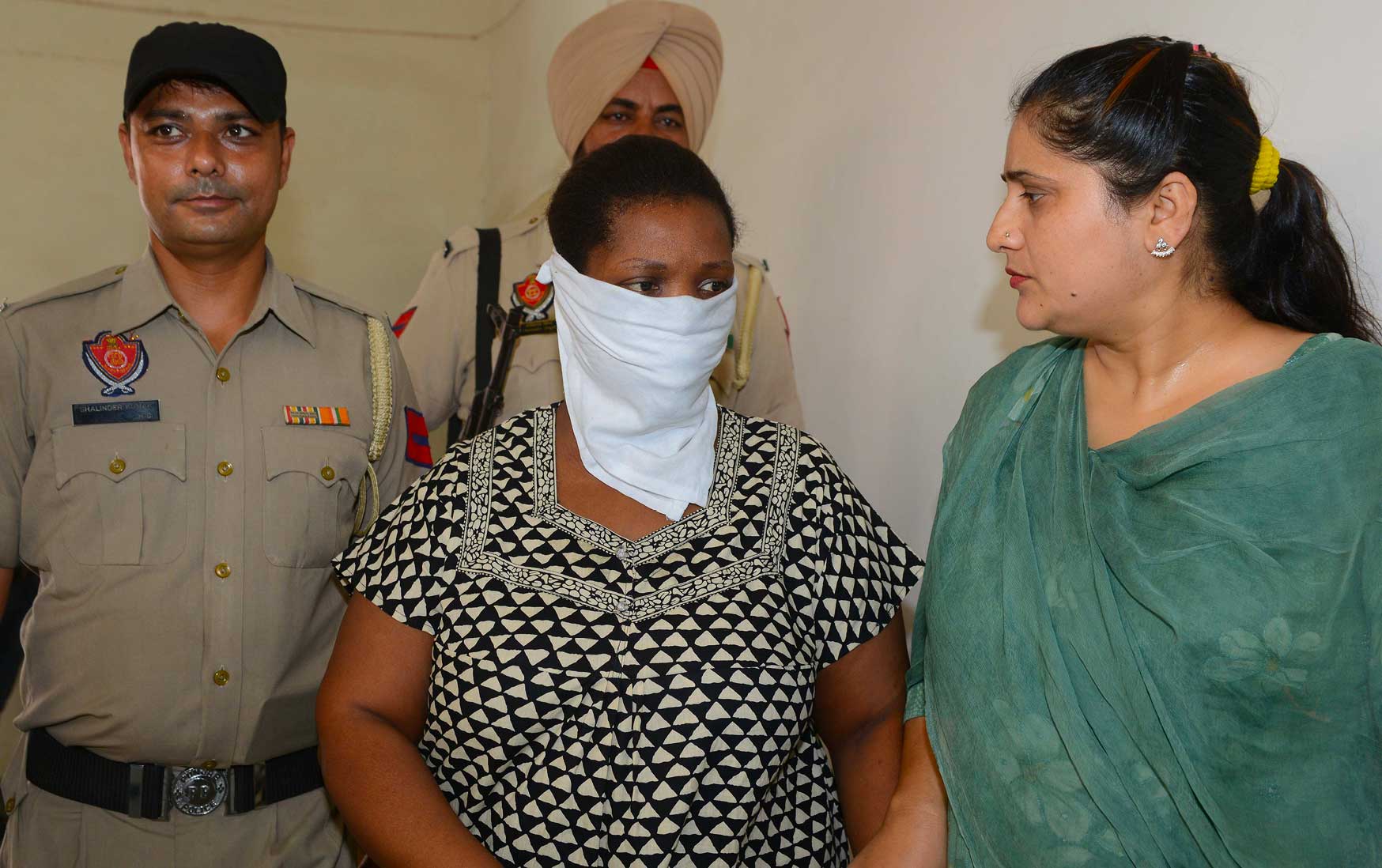
Indian Special Task Force (STF) personnel escort an alleged heroin smuggler, a Ugandan national, as she is presented to the media in Amritsar in July 2018. Indian authorities recovered 1kg of heroin after arresting the suspect. Photo: Narinder Nanu / AFP
Blessed with nearly 140 million hectares of rainforest, which comprises anything from endangered wildlife to timber, crude oil and a variety of untapped minerals, the DRC is one of the world’s richest nations in natural resources.
John*, a former illegal trader who did everything from supplying Burundian, South Sudanese and Congolese young girls to Kenyan and Ugandan brothels, selling pangolins, ivory, coltan and gold (fake and real) to European and Asian businessmen, says: “I visited Congo twice when I was doing this business, and all I can say is that country is a natural paradise. If one can manage to bring good, rare stuff to Uganda and Kenya, there is money to be made. I know many people who have become rich from illegally trading stuff from Congo.”
John insists that the transnational illegal trade is an ideal occupation for women. “Women are good at overcoming challenges they might face during these dangerous trips,” he says. “They can use their bodies to brave all sorts of obstacles, and they are less harassed by border and customs officials, as well as the security forces. These officials focus on men and let women pass freely. Besides, most female cross-border traders flirt with border, customs, and security officials, to help them pass with anything unhindered.”
Colette, from DRC, who has been involved in East Africa’s cross-border trade for the past 10 years, says: “When you start this business, the first thing you do is to get yourself a boyfriend working at the border post. He can be anybody, a cop, a soldier, a customs official, anybody working at the border. If you are going across three border posts, you must make sure you flirt with three border officials.
“This way, your business is covered because you become untouchable, and you can bring in anything you want, legal or illegal.
Asked if getting involved in illegal business did not scare her, Colette replies: “From where I’m standing, I can tell you that every cross-border business is tainted with illegal practices. Illegal stuff pays well and makes you prosperous very quickly.
“The temptation is too much. There are people in a particular country who have some very good stuff but they don’t know how to get it out of the country. And even if they manage to take it out, where will they sell it? So, they often contact female cross-border traders because they know that we are fearless and we have the right connections. And when you look at the value of the stuff, you tell yourself this is it.”
Another cross-border trader, Rose, a university graduate, says the involvement of women in transnational organised crime is no longer about poverty, but the shift of power towards the so-called soft gender.
“Women’s economic empowerment has reached another level,” she says. “Today’s women are brave and willing to take risks, and do anything men have been doing since the creation of this world. For too long we have been seen as good for nothing and treated like second-class citizens, but not anymore because we have decided to take our destiny into our hands.
“White people call it organised crime, but we black women, hustling day and night to feed our families and stop our dependency on men, we call it organised business. A group of brave and courageous women from different nationalities coming together to make things happen, and it’s happening because we are all in the quest for financial independence,” Rose says.
According to the authors of the ENACT report already quoted, despite their subordinate socioeconomic status and lack of decision-making authority, African women are often considered managers of their households and are responsible for providing food, water, health services and education for their families, often from very limited resources. This puts pressure on them to find irregular sources of income, they point out.
“While men may make an active decision to join an organised criminal network, women may have little choice but to become complicit in illegal activities as their primary, and often only, means of livelihood,” the report says.
*Some names have been changed.
Kinshasa-born Issa Sikiti da Silva is an award-winning freelance journalist. Winner of the SADC Media 2010 Awards in the print category, he has travelled extensively across the African continent. He lived in South Africa for 18 years, where he worked for 10 years as a journalist before leaving for West Africa, and later to East Africa, to work as a foreign correspondent. He is currently based in Nairobi, Kenya.

